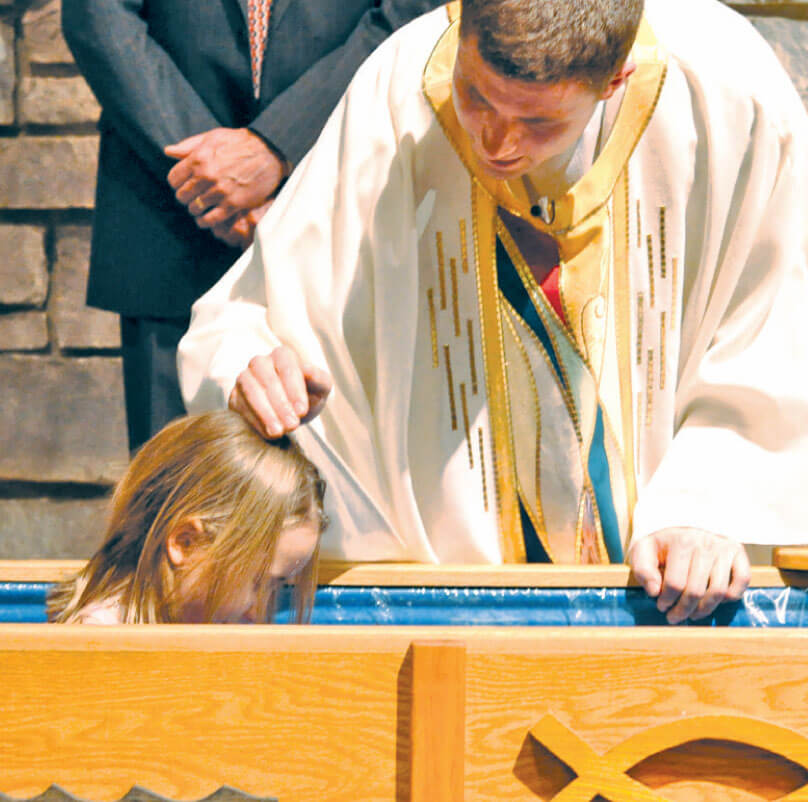
Easter Sunday celebrates Jesus’ resurrection from the dead. This is the core of Christian faith: that God raised Jesus, who was crucified, from the dead. His resurrection promises all who believe in him will be raised up to new life with God as he has been. He is the firstborn of a new humanity.
The act of raising Jesus from the dead reveals who God is — the one who gives life. By accepting death, Jesus reveals that God’s power lies not in magic or military might but in love. Love is the power that gives life, especially its concrete forms such as forgiving, serving others, sharing. These are the powers death cannot defeat. These are the human actions that reveal God as people go out and beyond themselves.
Jesus’ resurrection calls us to trust ourselves to God at our own deaths as Jesus trusted God on the cross. Our Easter faith calls us to trust the life-giving Creator whose presence shows forth in all that is and the sustaining Spirit who holds us in being.
Most adults know death as well as birth. We know the absence of those we have loved. We know we have left them in graves we often visit. We recover from watching them suffer and die. In their absence we have to settle for remembering them instead of having them with us. The death of loved ones or facing our own death calls the real Christian question. It is one of the baptismal promises. Do you believe in Jesus, who suffered, died, and was buried, and on the third day rose from the dead?
- How do you live your faith in new life?
First-century Jews imagined a messiah that called the hosts of heaven to arms, not a messiah who became like us, humbled himself, and accepted death on a cross.
The Romans crucified insurrectionists to discourage opposition. Roped or nailed by the hands to a crossbar and to an upright pole at the feet, victims could breath only by painfully pushing themselves upward by the feet, before falling back. Death by strangulation on a cross could take a week of hanging in public shame and mockery.
Whether people imagined the messiah as a great king like David or a prophet like Moses or a great priest and holy man, no one imagined the messiah without power, dying by crucifixion.
- What in my life tempts me to distrust God? What makes me doubt God’s promises?
Only by hindsight do Jesus’ followers understand the scriptures that the messiah must suffer and rise from the dead. In the fourth gospel, the evangelist John has Jesus’ crucifixion take place at the same hour the Passover lambs are being slaughtered at the temple. This is his way of comparing Jesus to the first Passover lambs, whose blood saved the firstborn of the ancient Hebrews on the night of their exodus from slavery in Egypt. John uses Israel’s scriptures to reflect on why Jesus had to suffer to come into his glory.
Jesus makes no end run around death but leads us through death to God’s promises. He shows us that self-giving, forgiving, sharing, and including outcasts take people beyond the boundaries of their selves and open them to God’s presence and power among them. The power of these actions in our lives and the lives of others gives us the same hint as spring does that we have the Spirit at work in us, more power than our own for building human community.
- What do you see in the empty tomb?
- What affirms your faith in Jesus’ self-giving way of life?
- What leads you to trust the promises of God?
Each year the Church reads the gospel from John 20.1-9 on Easter Sunday. The beloved disciple sees the empty tomb and believes; his response is ideal. We don’t continue and hear that a grieving Mary Magdalene stays at the tomb, meets her risen teacher, and announces to Jesus’ other followers, “I have seen the Lord,” (John 20.10-18).
Mary Magdalene hears a man she supposes to be the gardener speak her name. Like the sheep who know the shepherd’s voice in John 10, she recognizes Jesus’ voice.
In John 20, the evangelist’s resurrection chapter, people come to faith in Jesus in multiple ways. The beloved disciple sees and believes. Mary Magdalene hears and believes. In next Sunday’s gospel Thomas comes to believe through questioning.
The pronouns in Jesus’ words to Mary Magdalene stress his continuing relationship with his disciples. Jesus says, “I am ascending to my Father and your Father, to my God and your God.”
Jesus commissions Mary Magdalene to tell his disciples he is risen. She is the first witness of the resurrection and the one sent to tell the others — the apostle to the apostles.
- What do you hear in Mary Magdalene’s encounter with Jesus that affirms your faith?
- In what way is Jesus’ God your God?
